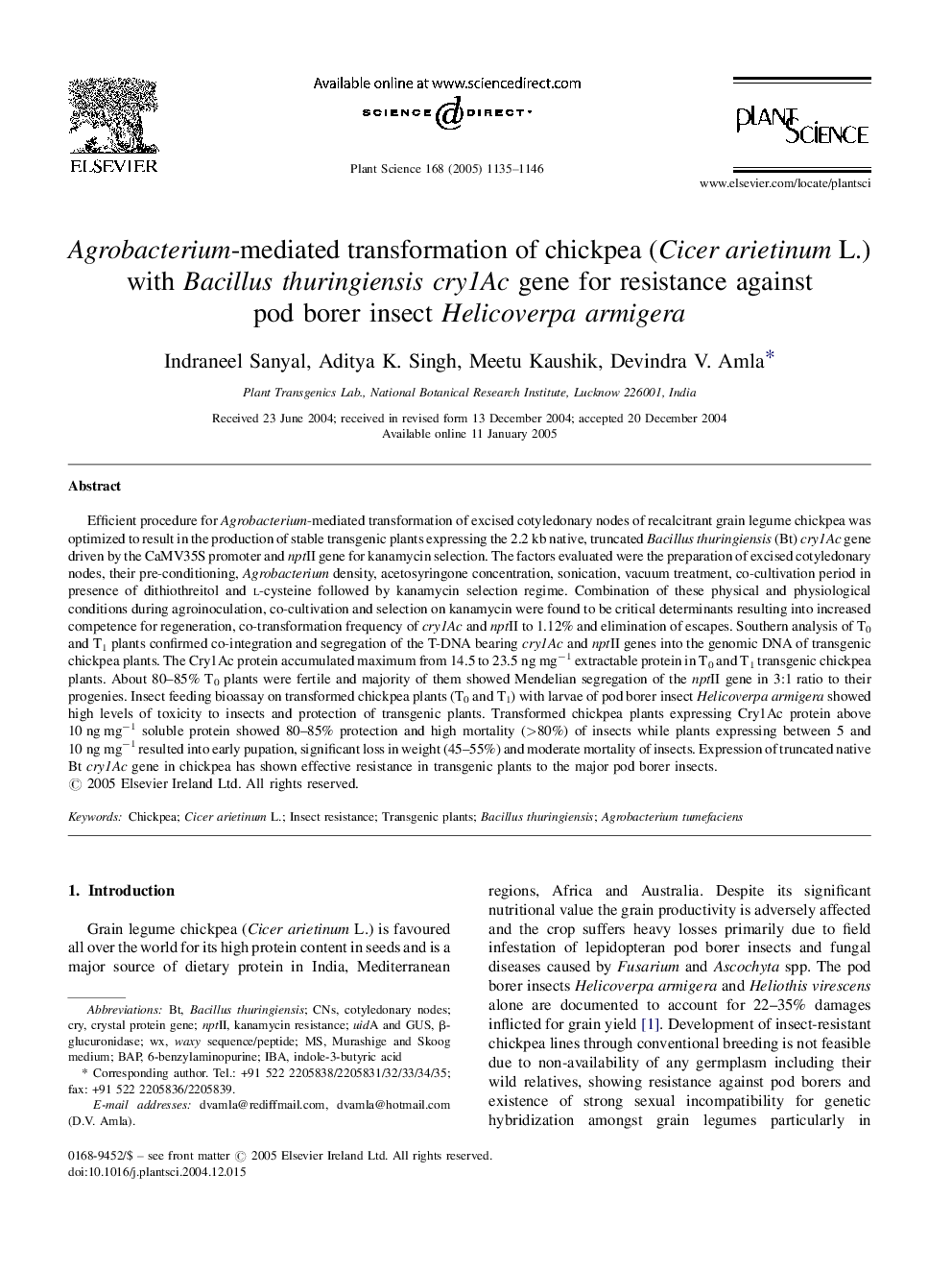| Article ID | Journal | Published Year | Pages | File Type |
|---|---|---|---|---|
| 10840967 | Plant Science | 2005 | 12 Pages |
Abstract
Efficient procedure for Agrobacterium-mediated transformation of excised cotyledonary nodes of recalcitrant grain legume chickpea was optimized to result in the production of stable transgenic plants expressing the 2.2 kb native, truncated Bacillus thuringiensis (Bt) cry1Ac gene driven by the CaMV35S promoter and nptII gene for kanamycin selection. The factors evaluated were the preparation of excised cotyledonary nodes, their pre-conditioning, Agrobacterium density, acetosyringone concentration, sonication, vacuum treatment, co-cultivation period in presence of dithiothreitol and l-cysteine followed by kanamycin selection regime. Combination of these physical and physiological conditions during agroinoculation, co-cultivation and selection on kanamycin were found to be critical determinants resulting into increased competence for regeneration, co-transformation frequency of cry1Ac and nptII to 1.12% and elimination of escapes. Southern analysis of T0 and T1 plants confirmed co-integration and segregation of the T-DNA bearing cry1Ac and nptII genes into the genomic DNA of transgenic chickpea plants. The Cry1Ac protein accumulated maximum from 14.5 to 23.5 ng mgâ1 extractable protein in T0 and T1 transgenic chickpea plants. About 80-85% T0 plants were fertile and majority of them showed Mendelian segregation of the nptII gene in 3:1 ratio to their progenies. Insect feeding bioassay on transformed chickpea plants (T0 and T1) with larvae of pod borer insect Helicoverpa armigera showed high levels of toxicity to insects and protection of transgenic plants. Transformed chickpea plants expressing Cry1Ac protein above 10 ng mgâ1 soluble protein showed 80-85% protection and high mortality (>80%) of insects while plants expressing between 5 and 10 ng mgâ1 resulted into early pupation, significant loss in weight (45-55%) and moderate mortality of insects. Expression of truncated native Bt cry1Ac gene in chickpea has shown effective resistance in transgenic plants to the major pod borer insects.
Keywords
Related Topics
Life Sciences
Agricultural and Biological Sciences
Plant Science
Authors
Indraneel Sanyal, Aditya K. Singh, Meetu Kaushik, Devindra V. Amla,
